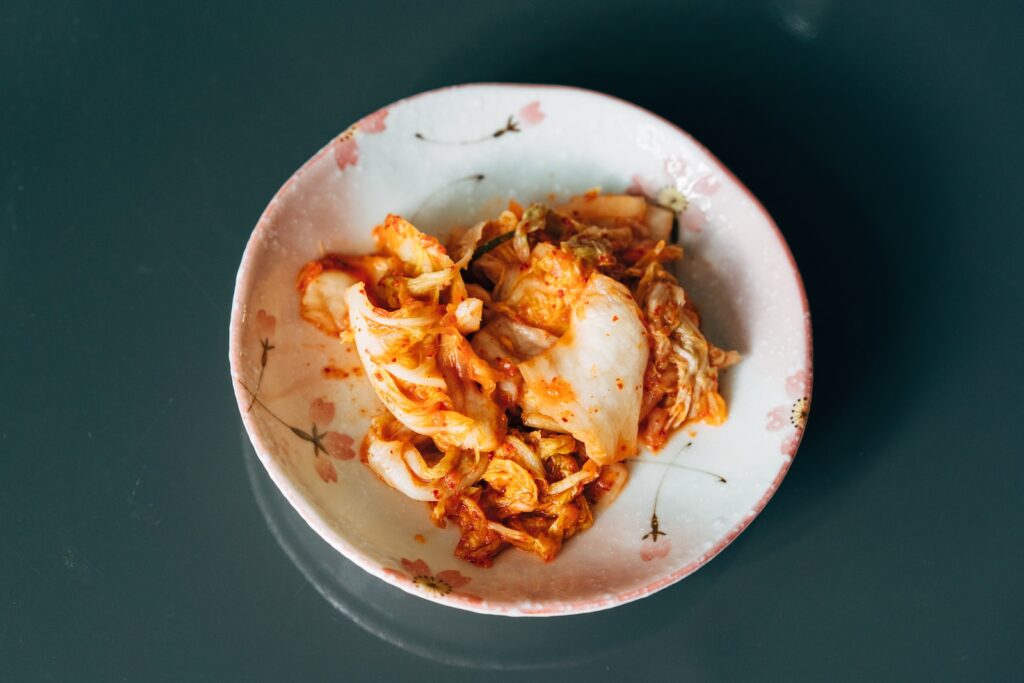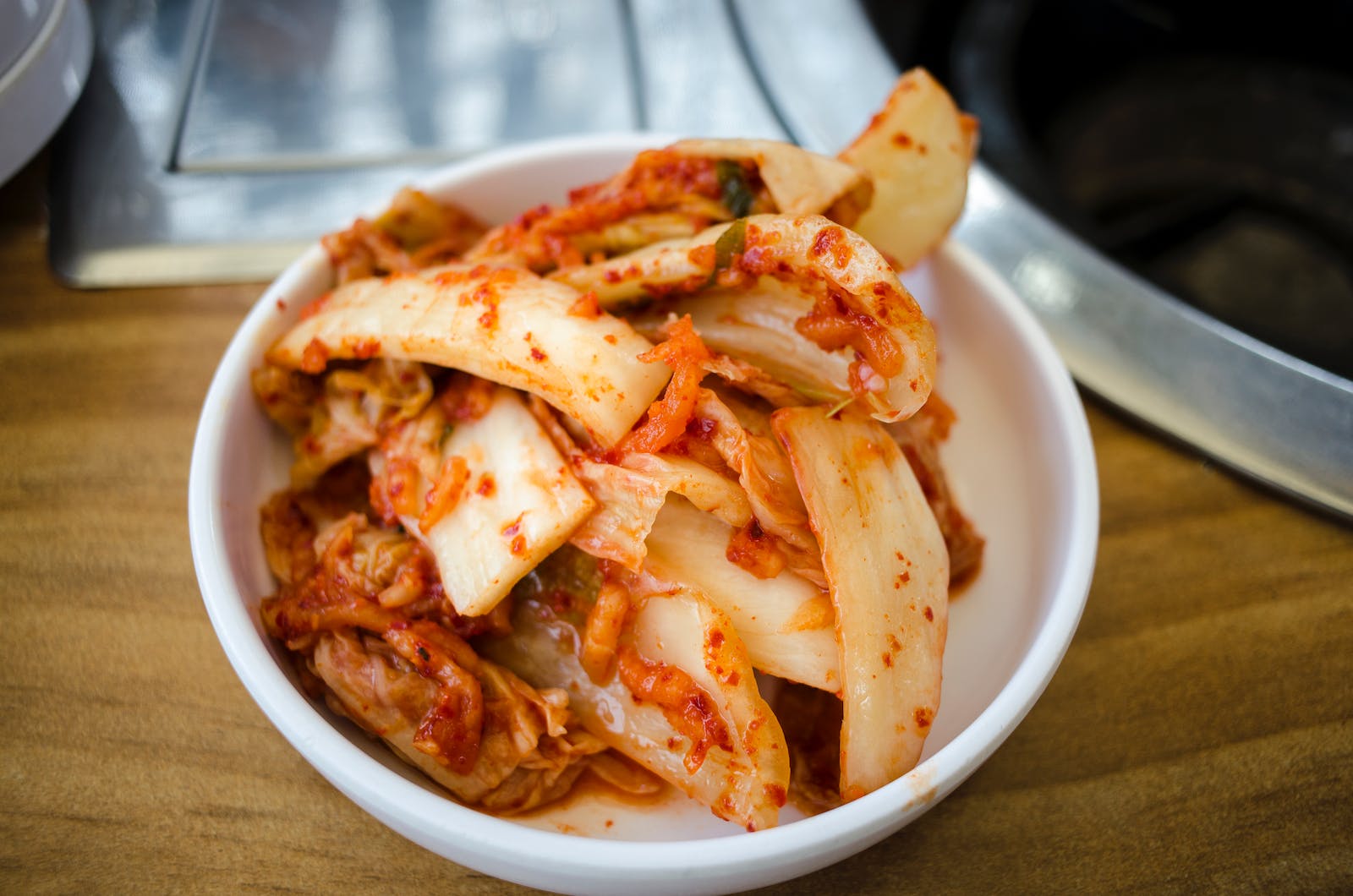Kimchi, a well-liked spicy fermented vegetable dish, has become widely popular worldwide for its flavor and health advantages, especially for gut health because of its probiotic properties. With increasing interest in gut-friendly diets, determining the ideal quantity of kimchi to enhance gut health is a significant aspect for many individuals.
The recommended amount of kimchi intake per day varies depending on individual dietary needs and tolerance to spicy foods. Generally, 1-2 tablespoons per day is a good starting point, which can be adjusted based on personal preference and digestive comfort.
Understanding the Probiotic Power of Kimchi
The recommendation of 1-2 tablespoons of kimchi per day is based on balancing the introduction of probiotics to the gut while considering the spicy and salty characteristics of kimchi that might not suit everyone in larger quantities. This serving size ensures that you can enjoy the benefits of kimchi without any potential drawbacks, such as digestive discomfort from the high fiber content or issues related to the intake of too much salt.
Nutrition
Kimchi’s nutritional profile is diverse, as it is made from a variety of ingredients including cabbage, radish, garlic, ginger, and chili peppers, among others. These ingredients contribute to its rich nutritional content. Here’s a table highlighting the key nutritional components found in kimchi and their importance:
Nutrient | Amount (per 100g) | Importance |
Calories | 15-30 | Low calorie, good for weight management. |
Carbohydrates | 2-3g | Provides energy. |
Fiber | 2-3g | Aids in digestion and promotes gut health. |
Protein | 1-2g | Essential for muscle repair and growth. |
Vitamins | ||
- Vitamin A | Varies | Supports vision and immune function. |
- Vitamin C | Varies | Antioxidant that supports immune function and skin health. |
Minerals | ||
- Calcium | Varies | Important for bone health and muscle function. |
- Iron | Varies | Essential for blood production and oxygen transport. |
Probiotics | Varies | Supports gut health by maintaining a healthy balance of intestinal flora. |
The specific nutritional content can vary significantly based on the recipe and fermentation time. Kimchi is particularly noted for its probiotic content, which comes from the fermentation process. Probiotics are beneficial bacteria that promote a healthy digestive system.
Vitamins A and C, along with minerals like calcium and iron, vary in their amounts due to the diversity of ingredients and their proportions in different kimchi recipes. Nonetheless, these nutrients play crucial roles in maintaining overall health, supporting everything from immune function to bone health.
It’s important to source kimchi that is made traditionally and allowed to ferment naturally to maximize its health benefits. Some commercial kimchi brands may contain preservatives or added sugars, so reading labels is advisable if you’re purchasing it from a store.

Balancing Benefits and Moderation
While kimchi is undoubtedly beneficial for gut health, moderation is key. Due to its high sodium content and the spicy nature of some varieties, consuming large amounts could lead to digestive discomfort for some people. Therefore, starting with a small serving and gradually increasing it based on your body’s tolerance is wise.
Diverse Ways to Incorporate Kimchi into Your Diet
To reap the benefits of kimchi without going overboard, consider incorporating it into your meals in various ways:
- As a side dish: A traditional way to enjoy kimchi, complementing any meal with its bold flavor.
- In soups and stews: Kimchi can add depth and complexity to broths, providing a probiotic boost.
- As a salad topping: For an extra kick, add kimchi to your salads.
- In sandwiches and wraps: A few tablespoons of kimchi can elevate the taste and nutritional profile of your sandwiches and wraps.
Is store bought kimchi good for gut health?
Yes, store-bought kimchi can be good for your gut health, but you need to check a few things. Make sure it’s labeled as “raw” or “unpasteurized” to ensure it has live probiotics. Also, check the ingredients for preservatives, and keep it refrigerated at all times to keep those probiotics alive. Trying different brands can help you find one that works best for you and your gut health.

How long does it take to heal your gut with fermented foods?
The time it takes to heal your gut with fermented foods can vary from person to person. Some people might see improvements in a few weeks, while others might take several months. It’s different for everyone.
Just be patient, listen to your body, and keep eating fermented foods along with a balanced diet. If you have concerns, it’s best to talk to a doctor or a dietitian for personalized advice.
In summary
Kimchi is a tasty option for gut health, with probiotics and nutrients. Start with 2-3 tablespoons daily for benefits. Include probiotic and fiber-rich foods for a healthy gut.
This post was all about how much kimchi for gut health should you eat per day.










